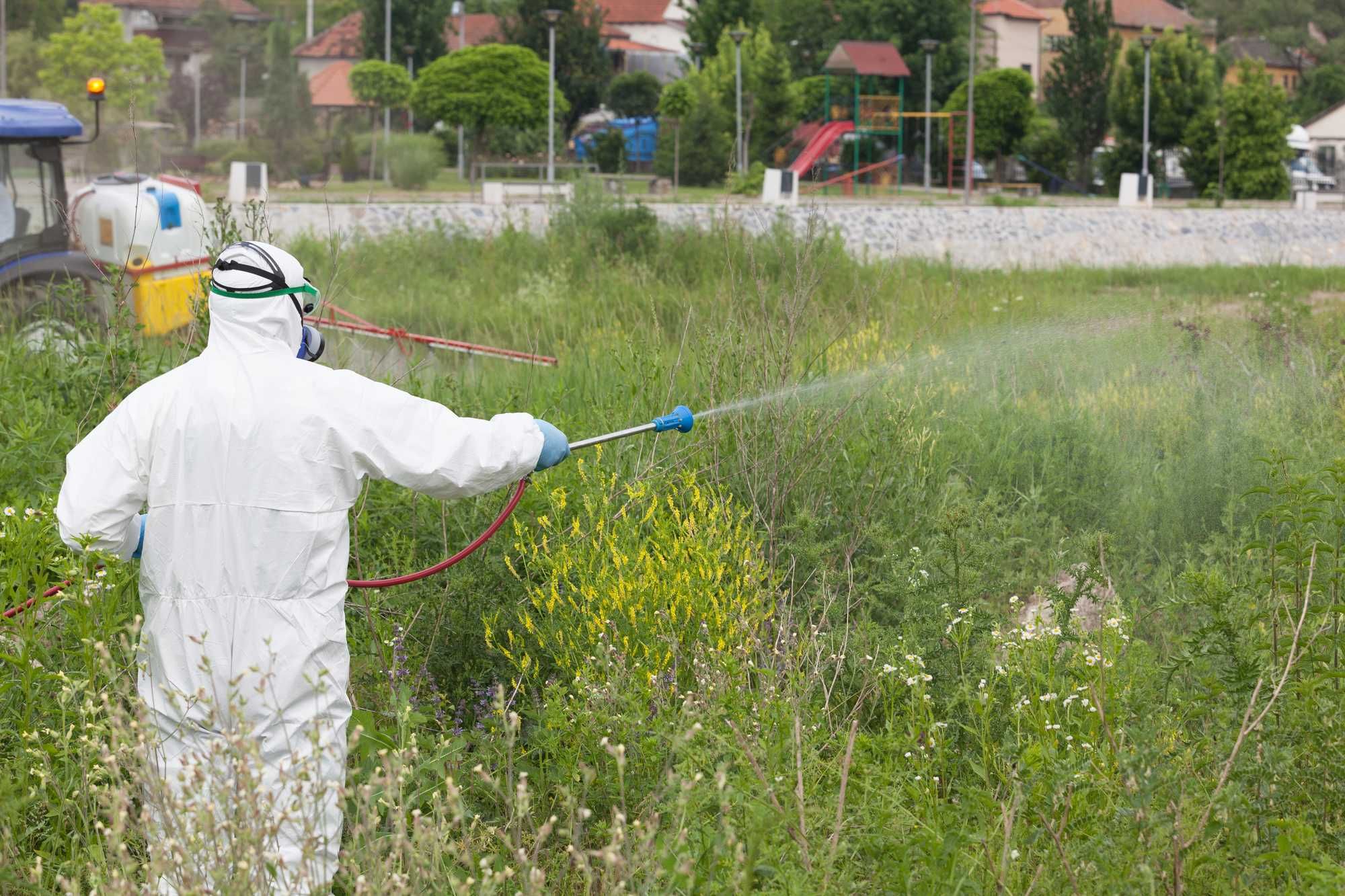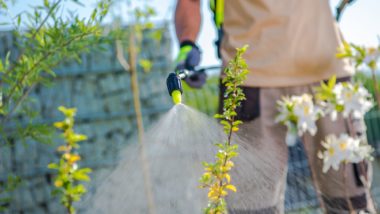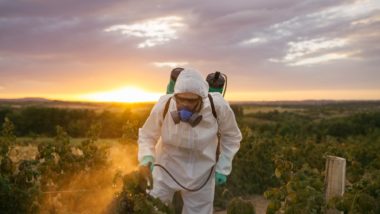Top Class Actions’s website and social media posts use affiliate links. If you make a purchase using such links, we may receive a commission, but it will not result in any additional charges to you. Please review our Affiliate Link Disclosure for more information.
Roundup is a household name and chemical herbicide that gets a lot of flack due to its controversial reputation for potentially being toxic. Many claims throughout the years have called Roundup a cancer-causing product, which has resulted in several lawsuits against Roundup’s manufacturer. However, the studies surrounding Roundup’s impacts vary.
How Does Roundup Work?
Roundup works as a weed killer, and its main ingredient is glyphosate. Roundup has been around since the 1970s. Since the ‘90s, glyphosate has boomed in popularity. Glyphosate in Roundup is non-selective, so it will kill most plants it comes into contact with. Roundup works by preventing plants from growing by stopping their creation of specific growth proteins. Roundup stops proteins from being made in the shikimic acid pathway, which works to stop plant growth.
Farmers, agricultural workers, and homeowners have used Roundup to control weeds and unwanted plant growth in crop fields and backyard gardens alike. Roundup will kill almost any plant it comes in contact with, making it an efficient weed killer.
Is Roundup Toxic?
Roundup’s signature ingredient is glyphosate, an herbicide used to kill weeds and other undesirable plants. Some experts say glyphosate itself is not highly toxic, but combined with other chemicals, as it is in Roundup, can be toxic to humans and animals. Products like Roundup can be toxic if they come into contact with the skin or are ingested.
If Roundup is inhaled or swallowed, it can cause several symptoms like burns, vomiting, and diarrhea.
If animals come into contact or eat plants that have been recently sprayed with Roundup, they can also become sick. Symptoms in animals include vomiting, drooling, diarrhea, and sleepiness.
Roundup should be kept out of reach of children and pets. After using Roundup, users should wash their hands to avoid toxicity and illness. Chemicals in Roundup can be toxic to wildlife and fish.
Does Roundup Cause Cancer?
There are numerous debates surrounding Roundup and its potential to cause cancer. The studies seem to be mixed and inconclusive. Some studies show that there is no correlation, while others suggest there is.
Roundup’s manufacturer, Monsanto, claims that Roundup does not cause cancer, and some studies agree. Monsanto has remained firm that Roundup’s ingredients are not a cause for concern. However, environmentalists have been worried about Roundup causing cancer for many years.
Research in 2013 showed that glyphosate might cause breast cancer by increasing cell division.
In 2016, a study showed farmers were more likely to develop cancer as a result of using pesticides in conjunction with being out in the sun for long periods.
One study aimed at proving whether or not Roundup causes cancer found that there was no association between glyphosate and cancer. The Journal of the National Cancer Institute performed a large study of almost 45,000 heavy glyphosate users in November 2017. The study did not find that Roundup is definitely linked to cancer, but the study did show a trend that heavily exposed users could have a higher occurrence of a form of leukemia.
Another study that ruled out low-exposure users, found that heavy users of Roundup or other glyphosate products had a 41% increased risk of developing non-Hodgkin lymphoma.
What Types of Cancer Has Roundup Been Linked to?
Roundup has been linked to leukemia and non-Hodgkin lymphoma, although studies vary. Non-Hodgkin lymphoma is common in the U.S. and Europe. For most people, though the risk is low, at 2.4% for those with no history of the cancer in their family. However, this risk is higher for people like farmers who have extremely high exposure to Roundup. Regular users of Roundup for household use have much lower exposure. Many studies do not show any heightened risk for the usual consumers of Roundup.
The biggest takeaway is that even those who are highly exposed to Roundup still reportedly have a small risk of cancer.
Have Any Lawsuits Been Filed Against Roundup?
There have been many Canada class action lawsuits and other countries filed against Roundup. There have reportedly been at least 700 lawsuits against Monsanto and other related firms in the courts.
Around 25 lawsuits have been in the U.S. by people accusing Roundup of causing non-Hodgkin lymphoma.
One lawsuit states that a woman who has been exposed to Roundup from the time she was 12 years old, developed non-Hodgkin lymphoma in 2014. The plaintiff had been a crop worker on farms throughout much of her life. She claims Roundup is the reason for her cancer diagnosis.
The plaintiff’s lawyer in the case currently has four open cases against Monsanto.
Do YOU have a legal claim? Fill out the form on this page now for a free, immediate, and confidential case evaluation. The Canadian lawyers who work with Top Class Actions will contact you if you qualify to let you know if an individual Roundup glyphosate cancer lawsuit or Roundup class action lawsuit is best for you. [In general, Roundup lawsuits are filed individually by each plaintiff and are not class actions.] Hurry — statutes of limitations may apply.
ATTORNEY ADVERTISING
Top Class Actions is a Proud Member of the American Bar Association
LEGAL INFORMATION IS NOT LEGAL ADVICE
Top Class Actions Legal Statement
©2008 – 2024 Top Class Actions® LLC
Various Trademarks held by their respective owners
This website is not intended for viewing or usage by European Union citizens.
Get Help – It’s Free
Join a Free Canada Roundup Class Action Lawsuit Investigation
U.S. citizens, click here for the U.S. Roundup Cancer Investigation.
If you qualify, an attorney will contact you to discuss the details of your potential case at no charge to you.
PLEASE NOTE: If you want to participate in this investigation, it is imperative that you reply to the law firm if they call or email you.






